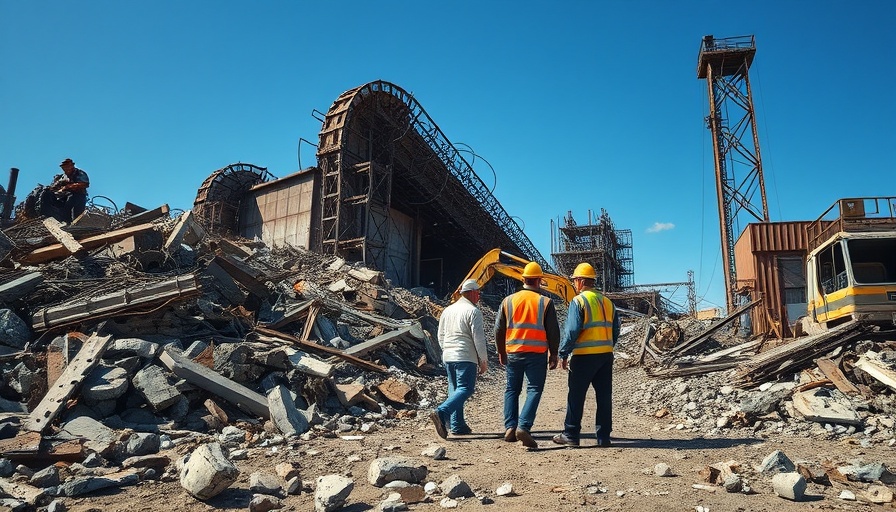
Overview of the Didcot Demolition Disaster
On February 23, 2016, the Didcot Power Station experienced a tragic collapse that resulted in the deaths of four demolition workers: Ken Cresswell, John Shaw, Michael Collings, and Christopher Huxtable. Almost nine years later, the investigation surrounding this catastrophic event is moving towards its final stages, according to the Thames Valley Police. The steady progression through the inquiry highlights both the complexity and the importance of this case, as families await answers regarding the safety lapses that led to such a devastating loss.
The Ongoing Investigation: Progress and Challenges
Deputy Chief Constable Ben Snuggs recently expressed confidence that the investigation is nearing completion; however, the ambiguity surrounding the timeline for concluding the inquiries remains. The joint investigation led by the Thames Valley Police and the Health and Safety Executive (HSE) has been extensive. To date, over 6,500 exhibits, 90,000 images, and 230,000 digital media artifacts have been analyzed as part of the investigation. Additionally, a staggering 180 hours of video interviews have been recorded, highlighting the thorough nature of this operation.
Acknowledging the Victims
As the investigation continues, the family members of the deceased have spoken out, emphasizing the emotional toll the prolonged waiting has taken on their lives. For example, Tia Huxtable, daughter of Christopher Huxtable, poignantly shared that her father's memory fuels her determination for justice. She stated, "We will not give up until justice is served for our men. No one should have to go to work and never return home." Such sentiments echo widely among the victim's families, who deserve clarity and closure.
The Impact on the Demolition Industry
The ramifications of the Didcot incident extend beyond the immediate tragedy; they affect the entire demolition and construction community in the UK. Mark Anthony, editor of Demolition News, remarked on the national disgrace of delaying the investigation for so long, likening it to past devastating events such as Hillsborough and Grenfell. "The entire demolition world is looking to the UK for answers... Nine years later, we still can't do that," he said. This incident has not only shaken the families of the victims but has also instigated a call for improved safety and accountability within the industry.
Future Predictions and Insights
The ongoing investigation raises several critical questions regarding future safety regulations in the demolition sector. While Thames Valley Police remains committed to uncovering the truth behind the Didcot disaster, many industry experts and family members are advocating for immediate systemic changes to ensure that no one suffers such losses again. Calls for a public inquiry have gained traction, reflecting a need for transparency in how such tragedies unfold and how they are managed.
Conclusion: The Journey Towards Justice
As we approach the tenth anniversary of the Didcot demolition disaster, it is imperative for both the investigation teams and the industry stakeholders to prioritize the lessons learned from this tragedy. The families of the four workers are still seeking not just accountability but reassurance that such incidents will not be repeated. Through the challenges of this complex inquiry lies an opportunity for significant reform in workplace safety standards.
 Add Row
Add Row  Add
Add 




Write A Comment